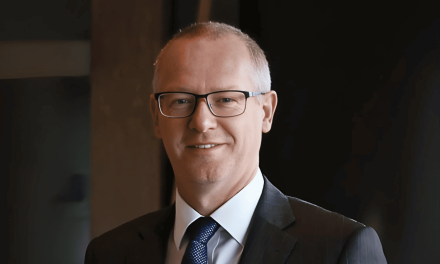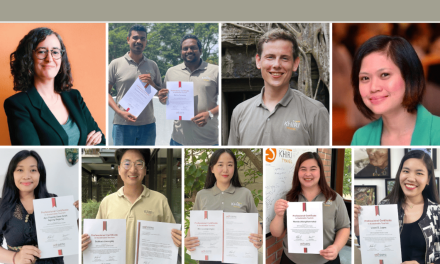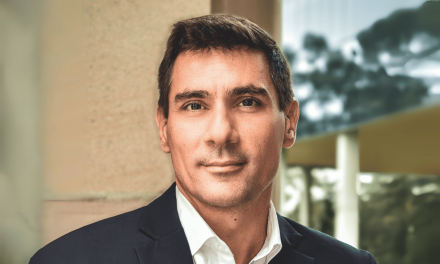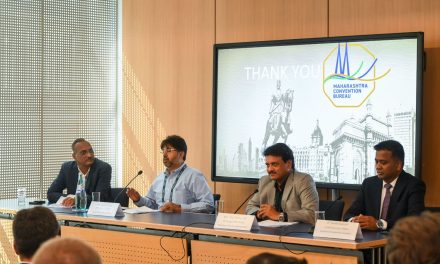Making a difference. “As an industry, we’re sleep walking towards a potential disaster, where CSR managers might say to their CEOs: Let’s cancel all physical meetings and do video conferences instead. That will cut our carbon emissions and save us money. Now is the time for the events industry to demonstrate the clear advantages tied to live events and show, how events can be used to create a better world,” says Fiona Pelham, who is on a mission to create a more sustainable events industry.
Pelham has an extensive experience in the power of face-to-face events. She has been the youngest woman to chair an ISO standard (ISO 20121, specifically designed for the events industry). She is the founder and CEO of two event related companies and is the first female European appointed global chair for Meeting Professionals International (MPI). Companies like San Francisco Giants, VMware, The Rio Olympic and Paralympic Games and many more have relied on Pelham to create a sustainable event.
“When I decided to set up my event business in 2004, I didn’t even know the term sustainability. I naively thought that making a difference for the community and the environment was something that many event companies were focusing on. As a former girl scout leader, I’ve seen the power of events within local communities, so to me it was just common sense,” Pelham explains when asked where it all started. She also illustrates – with her own words – how she, almost accidentally became an expert on sustainability purely by taking actions around what she believed.
After a year of planning sustainable events, Pelham realized that there is a strong need for education. More clients were asking for sustainability solutions. So she decided to set up “Positive Impact”, dedicated to providing education to create a sustainable events industry. By 2008, Pelham was chairing a British Standard inspired by the London 2012 Olympic and Paralympic Games and continued to chair the standard as it become international with the involvement of over 30 countries. Since its launch in 2012, ISO 20121 has become the respected norm for sustainable global events.
“In the lead up to London 2012, I saw how the power of a mega event can inspire change within the supply chain. In 2017, Positive Impact delivered research with input from across the industry and this point was clear. Events inspire people. When people come together that’s how we create a world that works for everybody, because that’s where we collaborate, innovate, share and connect,” Pelham concludes.
“A world that works for everybody” is a simple way to sum up what UN’s Sustainable Development Goals, the SDGs, are all about. Pelham continues to collaborate closely with global influencers such as the UN bodies. She stresses that the SDGs have made governments and companies realize that action must be taken, and taking action makes business sense.
This is echoed by Melanie Delaplanche from MCI, which added sustainability to their area of expertise some ten years ago. “The SDGs are being integrated in many organisations that will put in place KPIs to measure, how they contribute to achieving them,” Melanie says and continues: “The two last years, I have observed that sustainability is making its way up on the agendas and market leader corporations are integrating sustainable practices in the planning and delivery of events. We recently signed a contract with a leading financial institution to support them in implementing the ISO20121 across their events operations worldwide. It’s very encouraging that corporates are becoming more mature and understand the challenges ahead, as well as the benefits of considering the bigger picture,” says Delaplanche.
Sustainable meetings and events have the opportunity to showcase that an organisation can operate and manage an event in an environmentally, socially and economically friendly way, says Claudia van’t Hullenaar, owner of Sustained Impact and member of the sustainable events committee of the Events Industry Council: “Business leaders are adopting the SDGs and strategically aligning their business to the goals. Meetings and events can support this goal.”
The SDGs range from gender equality and peace to equal access to education and zero poverty, but a survey conducted by Positive Impact shows that 61 percent of event professionals think that sustainability equals reducing the environmental footprint.
According to Pelham, this is a barrier for the industry who could benefit from the increasing focus on sustainability and the SDGs and use events as a catalyst. “It’s time to stop talking about carbon footprint and waste management and time to start talking about the positive impacts of our events. Unless we can tell that story, the role of events in the world, is under threat”.























